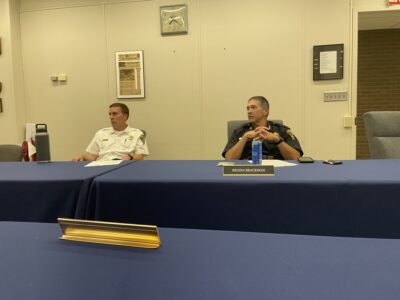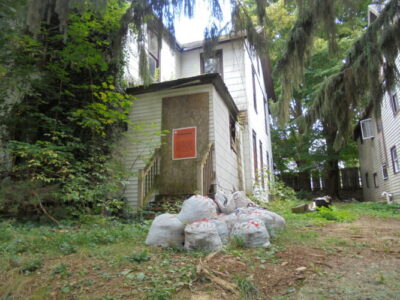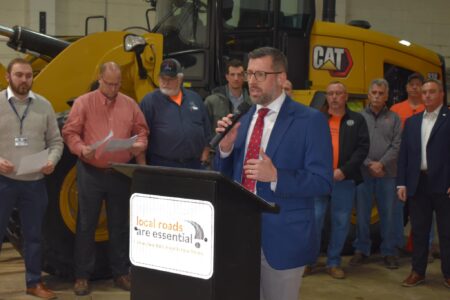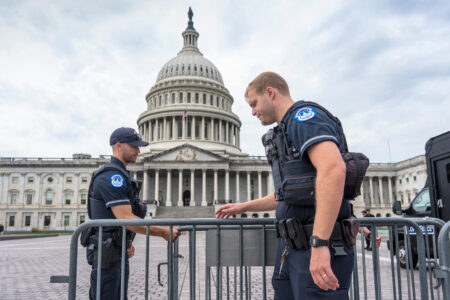City Budget Deliberations Continue
City officials found an additional $13,000 in savings following budget discussions with the police and fire departments.
On Nov. 7, budget deliberations continued when Jamestown City Council talked about the proposed 2017 budget with Harry Snellings, public safety director and police chief, and Chet Harvey, deputy fire chief. Anthony Dolce, Ward 2 councilman and Finance Committee chairman, told The Post-Journal Wednesday they discussed equipment and capital needs for both departments. They also talked about staffing levels for police and fire, with both at minimum levels.
Also during the fire department discussion, it was indicated the city will save $13,000 next year in salaries. Joseph Bellitto, city comptroller, told The Post-Journal the savings of $13,810 occurred because a firefighter, who was eligible for a step salary increase, didn’t apply for the pay raise by the deadline. By failing to file the paperwork, the firefighter is not eligible for the step salary increase in 2017.
Dolce said, to this point in the budget deliberation process, they have been able to find around $53,000 in savings and additional revenues. Bellitto said city officials will be increasing the payment in lieu of taxes from the Jamestown Board of Public Utilities water division by $25,000 following a recalculation. Also, they will save an additional $15,000 in health insurance costs following a new contract with Blue Cross Blue Shield.
”We’re up to roughly $53,000 that we have whittled away from the budget,” Dolce said.
In the 2017 executive budget released by Jamestown Mayor Sam Teresi Oct. 11, there was an $878,736 deficit. Teresi said, when he released the proposed budget, that city officials and council members will need to work together, and with partners at the state and county levels, to identify new revenue and restructuring opportunities to close the deficit. Council has until Dec. 1 to pass a 2017 fiscal plan or the executive budget becomes next year’s spending plan.
Also on Nov. 7, a public hearing was held on overriding the state’s tax cap. Last month, city council passed a local law to override the state tax cap for the 2017 spending plan. The executive budget proposes to increase the tax levy by $150,220, or .96 percent. The tax levy increase in the executive budget is $42,955 above the state’s tax cap limit, which is .69 percent for the city in 2017.
Last month, Teresi said following the tax cap override public hearing, he will either sign the law into effect or veto the legislation. The local law to exceed the tax cap, the public hearing and the mayor’s approval are all necessary by Dec. 1. Council needs to approve a spending plan by Dec. 1 or the executive budget goes into effect for the city’s fiscal year, which is Jan. 1 to Dec. 31. Brent Sheldon, Ward 1 councilman, was the only council member to vote against the tax cap override.
Dolce said with the executive budget only $42,000 above the tax cap, there is a good chance they might be able to pass a budget that will have a tax levy increase below the state threshold. If city officials can get under the state tax cap, Dolce said the mayor still has the option to veto the tax cap override that was passed by City Council last month.
”Because we are at the Constitutional tax limit, the (tax levy) increase is very small. We are only about $20,000 away from getting under the tax cap. We are confident we might not go over the tax cap,” Dolce said. ”This doesn’t solve the major problem of the deficit, but we will continue to look at that.”
The constitutional tax limit is the amount of money a municipality can ask its property taxpayers to provide compared to the total assessed property value in the community. Each municipality in the state has a constitutional tax limit of 2 percent of the five-year average of the total assessed property value in the community.
For the 2016 budget, city officials passed a spending plan with a tax levy increase of $469,787, which was above the tax cap. For municipalities that comply with the tax cap, residential taxpayers receive a rebate check on their property taxes. The state’s tax cap program started in 2012. This year’s city budget was the first time council passed a spending plan with a tax levy increase over the state tax cap since the start of the program.
Today, a public hearing will be held on the proposed budget at 6 p.m. on the second floor of the City Municipal Building, located at 200 E. Third St. City Council will continue to deliberate the proposed fiscal plan at 6:30 p.m. in the mayor’s conference room on the fourth floor when they will talk to officials from local agencies – Fenton History Center, James Prendergast Library and Jamestown Area Senior Center – and the city Department of Development.
The proposed tax rate is $23.77 per $1,000 assess property value. This is 18 cent increase, or .76 percent.





